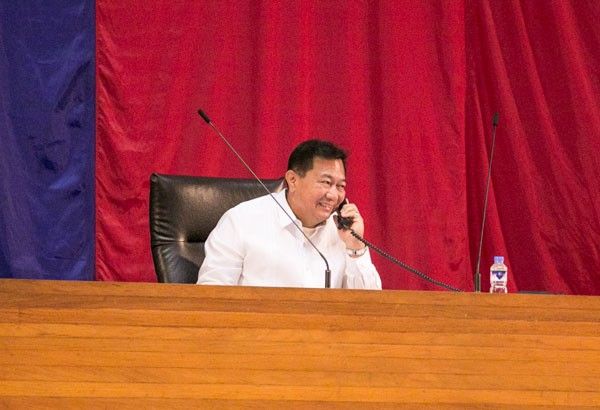House passes bill abolishing PCGG, OGCC

MANILA, Philippines (Updated 6:23 p.m.) — The House of Representatives on Tuesday approved a bill to abolish the Presidential Commission on Good Government and the Office of the Government Corporate Counsel in a bid to further strengthen the powers of the Office of the Solicitor General, the government's top lawyer.
Lawmakers voted 162-10 to approve House Bill 7376 on third and final reading.
The bill, principally authored by Speaker Pantaleon Alvarez (Davao del Norte), seeks to strengthen the OSG, currently led by Jose Calida, who will supervise the “consolidation” of the powers and functions of the PCGG and the OGCC into his office.
The PCGG is the agency tasked to go after the ill-gotten wealth amassed during the dictatorship of Ferdinand Marcos. Since its establishment in 1986, it has recovered at least P170 billion from the Marcoses and their cronies.
RELATED: A look into plans to abolish the agency going after Marcos loot
Calida, a Marcos loyalist, campaigned for Ferdinand "Bongbong" Marcos Jr., in the 2016 vice presidential election and was among the leaders of the Alyansang Duterte-Bongbong, which was also called ALDuB after the popular noontime show couple.
The vote was made following the exit of former Justice secretary Vitaliano Aguirre, who had been blocking the move to abolish the PCGG.
Strengthening the OSG
The bill seeks the conversion of the OSG into an independent and autonomous office attached to the Office of the President for budgetary purposes.
The OSG is currently attached to the DOJ, but the department’s authority, control and supervision over the OSG are limited to only budgetary purposes.
The bill also seeks the creation of at least 50 legal divisions in the OSG, each of which shall be headed by an Assistant Solicitor General and shall consist of at least 10 lawyers and other personnel.
'Redundant agencies'
In 2017, Calida said it would be better to abolish both the PCGG and the OGCC to “eliminate redundant, duplicative and overlapping functions” since both agencies share a client—the Republic of the Philippines.
“The integration of the functions of the OGCC and PCGG will promote the use of alternative dispute mechanisms, avoid protracted court litigations and encourage consistency in the legal position of government agencies,” he said.
In a position paper, Aguirre noted that the PCGG’s function is different from that of the solicitor general’s, which is to be the government’s chief legal counsel.
The PCGG, meanwhile, is a quasi-judicial agency whose findings are treated binding, in a manner similar to findings of trial courts.
Critics see the abolition of the PCGG as another step towards the rehabilitation of the Marcos family, which has been in national politics since Ferdinand Marcos Jr. was elected to the Senate in 2010. He has a pending electoral protest against Vice President Leni Robredo, who beat him in the 2016 elections.
The Marcoses have yet to acknowledge human rights violations and corruption during the ousted dictator's more than 20 years in power.
A government board finished this month the screening and documentation of victims of human rights violations during the Marcos regime. Qualified victims and their families will be paid reparations sourced from ill-gotten wealth recovered from the Marcoses.
READ: A look into plans to abolish the agency going after Marcos loot
- Latest
- Trending




























